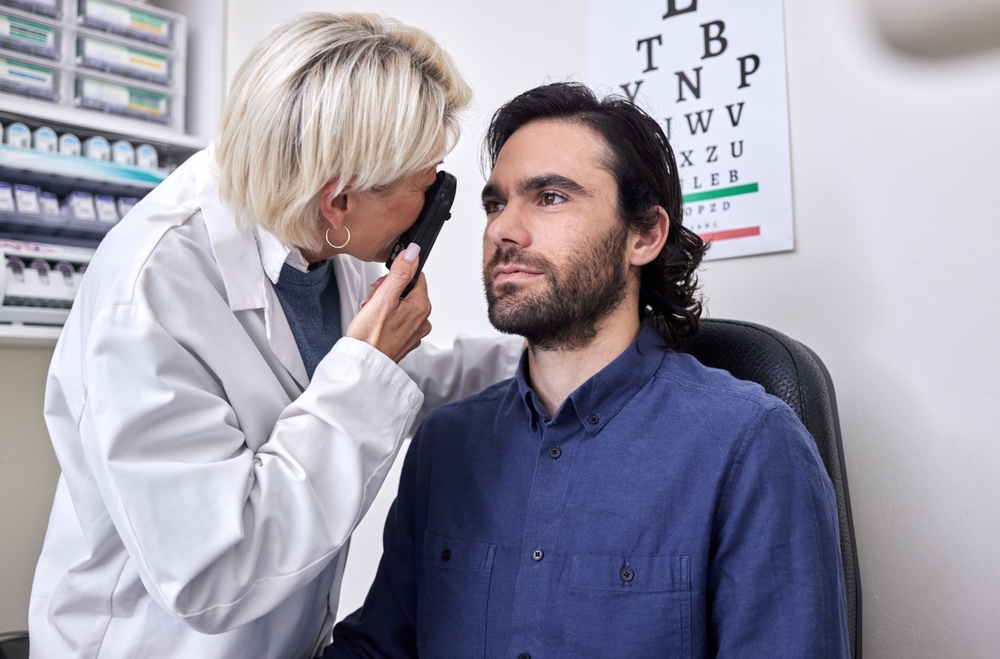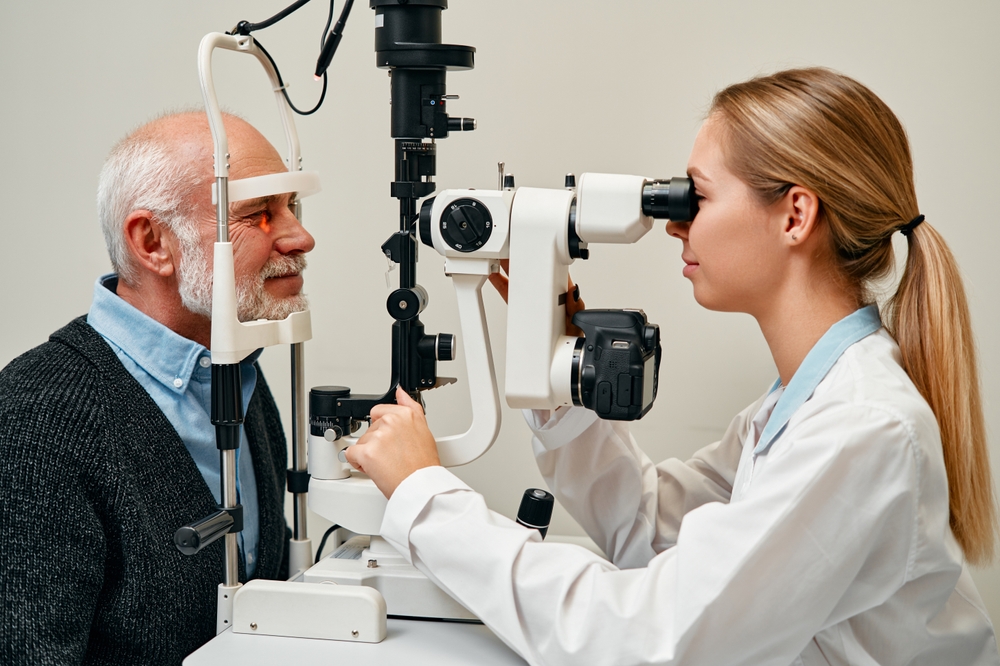What Can I Expect During a Routine Eye Exam?
August 16, 2024
Your vision is one of your most precious senses, playing a crucial role in how you experience and navigate the world. Regular eye exams are essential to maintaining healthy vision and overall well-being.
Keep reading to learn what you can expect at a routine eye exam!
Why Is it Important to Get Regular Eye Exams?
 To protect your vision and make sure it is not affected by injury or disease, it is important to make regular eye exams part of your health care routine. An experienced eye doctor can diagnose and treat vision changes, such as nearsightedness or farsightedness, and diagnose cataracts or other eye conditions.
To protect your vision and make sure it is not affected by injury or disease, it is important to make regular eye exams part of your health care routine. An experienced eye doctor can diagnose and treat vision changes, such as nearsightedness or farsightedness, and diagnose cataracts or other eye conditions.
An eye exam could also be the first step in detecting other health issues, including high blood pressure or diabetes. Neglecting your eye care or not going in for regular exams can result in a reduction in the clarity of your vision and other eye problems.
Having an annual eye exam at Arlington Eye Center is the best way to get started on a path to a lifetime of healthy vision.
Do Adults Need Regular Eye Exams?
For kids, a pediatrician usually conducts an eye exam during the annual well visit and recommends a child see an eye doctor if any eyesight changes or problems are discovered. However, adults need to have their eyes examined yearly by a qualified eye doctor.
This is important for many reasons, including updating your glasses or contact lens prescription for glasses or contact lenses. An eye doctor also will check for any eye conditions, including cataracts, glaucoma, or macular degeneration.
To protect and maintain vision, it is important to catch these conditions early so your eye doctor can come up with a treatment plan. Adults who have certain conditions, including diabetes or a family history of certain eye conditions, may need more frequent check-ups.
How Should I Prepare For My Eye Exam?
Once you make an appointment for your eye exam, list any questions you would like to ask your eye doctor. At the eye doctor's office, you will need to fill out a medical history form so your eye doctor has a complete picture of your medical health.
Be sure to mention any vision problems you're having, any medications you're taking, previous illnesses, allergies, or other medical issues you may have. You may be asked questions about your family's health history.
Be sure to bring any glasses or contact lenses you're currently using to the exam, along with any current eye prescriptions. Your eyes may be dilated during the exam, so bring a pair of sunglasses to make yourself more comfortable for the trip home because dilated eyes are very sensitive to light until the drops wear off.
What Happens During an Eye Exam?
 During your eye exam, your eye doctor will do several tests on your eyes. These tests may include an eye muscle movement test, where you will be asked to follow a target, such as a pen, with your eyes as the pen moves in different directions.
During your eye exam, your eye doctor will do several tests on your eyes. These tests may include an eye muscle movement test, where you will be asked to follow a target, such as a pen, with your eyes as the pen moves in different directions.
This will help assess your eyes' alignment. In addition, your eye doctor will examine how well your eyes work together by conducting a cover test. Your eye doctor will cover and uncover each eye to observe how each eye moves as it stares toward a target or a picture some distance away.
Your eye doctor will watch how your eyes adjust to light and objects close to you.
None of these tests are invasive or painful. To test your visual acuity, you will be asked to look at an eye chart with rows of letters that get smaller as you read each line.
You will be asked to do this using each of your eyes while reading aloud. If you need corrective lenses, your eye doctor will have you look through different lenses and ask you which one provides the clearest vision.
This allows your eye doctor to fine-tune your prescription. To thoroughly assess your eye health, your eye doctor may dilate your pupils using specialized eye drops.
This allows for a clear view of the back of your eyes, including the retina and optic nerve, ensuring a comprehensive examination of these crucial structures.
Are There Other Tests I Might Have?
Your eye exam may include additional tests to thoroughly assess your eye health. The eye doctor might perform a quick, painless tonometry test to measure eye pressure, which is crucial for detecting conditions like glaucoma.
A visual field test may evaluate your peripheral vision by having you focus straight ahead while mapping your side vision. Depending on your risk factors, specialized screenings such as a detailed examination of intraocular pressure might be conducted.
If you have conditions like high blood pressure or diabetes or take certain medications, your eye doctor may recommend more frequent testing. This allows for closer monitoring of your eye health and early detection of any changes or potential issues.
What Happens After Eye Testing?
After your eye exam concludes, your eye doctor will discuss the results with you, outlining any findings and proposing appropriate treatment options. If necessary, they may recommend a follow-up appointment to monitor your eye health or address specific concerns.
Throughout this process, you're encouraged to actively participate by asking questions about your diagnosis and treatment plan. Your understanding and involvement are crucial for maintaining optimal eye health.
Remember, your eye care is a collaborative effort between you and your doctor, so don't hesitate to seek clarification or express any concerns you may have. Being proactive in your eye care ensures you receive the best possible outcomes for your vision and overall eye health.
Is it time for you to schedule an annual eye exam? Schedule an appointment at Arlington Eye Center in Arlington, VA, today!



